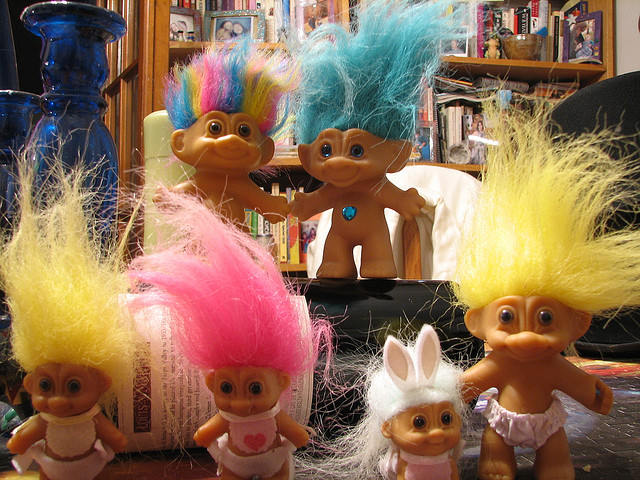
Patent reform is in the air. Five bills are pending in Congress and just yesterday the Obama Administration put out a strongly worded report on the subject.
Given the timeliness of the issue, it's no shock to see an op-ed about it in today's New York Times, suggesting a solution to "[t]he onslaught of litigation brought by 'patent trolls.'" But the missive comes from a surprising and influential source—Randall Rader, the chief judge for the US Court of Appeals for the Federal Circuit, which hears all patent appeals.
The jurisprudence coming from that court in the past two decades has done a great deal to enable—arguably, to create—modern patent trolling. It enacted the State Street Bank decision, which opened up the floodgates to software patenting in 1998.
The Federal Circuit doesn't agree about software patents at all. The most recent big software patent decision ended in total gridlock, with 10 judges issuing seven different opinions. Rader authored a part of that opinion showing he clearly favors software patenting, writing that a computer without software "collects dust, not data."
While he may support software patenting, Rader clearly has an idea that a certain type of patent holder is doing damage to the economy. In today's op-ed, co-written with two law professors, Rader notes that trolls have "slowed the development of new products [and] increased costs for businesses and consumers." He continues to describe the trolls' tactical advantages:
Trolls, in fact, filed the majority of the roughly 4,700 patent suits in 2012—and many of those were against small companies and start-ups that often can’t afford to fight back.
The problem stems largely from the fact that, in our judicial system, trolls have an important strategic advantage over their adversaries: they don’t make anything. So in a patent lawsuit, they have far fewer documents to produce, fewer witnesses and a much smaller legal bill than a company that does make and sell something.
Because they don’t manufacture products, they need not fear a counterclaim for infringing some other patent. They need not be concerned with reputation in the marketplace or with their employees being distracted from business, since litigation is their business.
Trolls, moreover, often use lawyers to represent them on a contingent-fee basis (lawyers get paid only when they win), allowing trolls to defer significant legal costs that manufacturers, who generally must pay high hourly fees, cannot.
With huge advantages in cost and risk, trolls can afford to file patent-infringement lawsuits that have just a slim chance of success. When they lose a case, after all, they are typically out little more than their own court-filing fees. Defendants, on the other hand, have much more to lose from a protracted legal fight and so they often end up settling.
Calling on judges to use their power
The solution to all of this? While change is being discussed in both the legislative and executive branches of government, Rader sees another possibility: judges can simply do more fee-shifting. A section of the Patent Act allows for attorneys' fees to be ordered in "extraordinary cases." Another tool, Rule 11 of the federal litigation rules, describes the situations in which lawyers can be sanctioned.
That isn't happening at the moment. Fees were shifted under the Patent Act in only 20 cases out of nearly 3,000 filed in 2011, according to a study by co-author Colleen Chien, who was also cited in yesterday's White House report.
One sign of potential abuse "is when a single patent holder sues hundreds or thousands of users of a technology (who know little about the patent) rather than those who make it," note the authors. "Judges know the routine all too well, and the law gives them authority to stop it. We urge them to do so."
More fee-shifting would certainly help, but it would be an incremental step. Fee-shifting is more common in copyright situations, but that hasn't stopped widespread fishing expeditions commonly called "copyright trolling." This is partly because it often takes a fair amount of resources just to push through the beginning of litigation.
Historically, Rule 11 has only been upheld by the Federal Circuit after a great deal of litigation hassle to prove that the patent-holder's claims were truly "baseless." A recent example would be the Eon-Net case, which resulted in around $600,000 of sanctions against a patent-trolling plaintiff—but not until a defendant fought for four years and was turned down by the Federal Circuit once.
reader comments
64